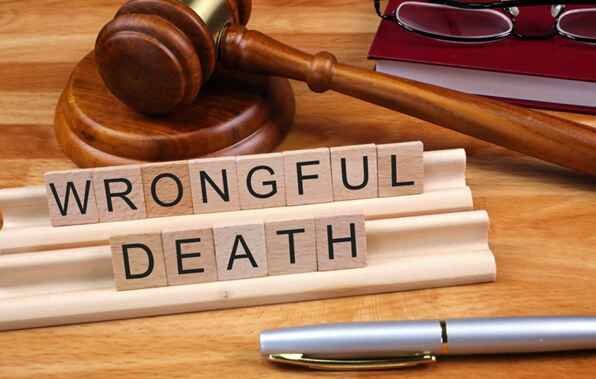Losing a loved one is never easy, especially when their death was caused by someone else’s negligence or misconduct. In such tragic situations, families are often left with overwhelming emotional pain, financial burdens, and a desire for justice. That’s where wrongful death lawsuits come in, offering a legal path to hold the responsible party accountable and seek compensation.
However, navigating a wrongful death claim can be confusing, especially for those unfamiliar with legal processes. Questions often arise about who can file the lawsuit, what damages can be recovered, how long the process takes, and what kind of proof is required. Getting accurate answers is essential to making informed decisions during such a difficult time.

If you’re unsure about your rights or the steps involved, it’s best to discuss your wrongful death case with an experienced attorney. They can explain the legal options available to you, guide you through each stage of the process, and help ensure your family’s interests are protected.
Who Can File a Wrongful Death Claim?
The ability to file a wrongful death claim typically depends on state law, but in general, close family members of the deceased are eligible to pursue this legal action. As a rule, a spouse, child, or parent is allowed to file the notice. In other states, siblings, grandparents, or anyone else who was dependent on the dead person could also be eligible to sue.
If you’re unsure about your eligibility, it’s best to discuss your wrongful death case with an experienced attorney who understands the specific laws in your state. The case is usually filed by the personal representative of the decedent’s estate on behalf of the surviving family members. Because rules can vary from state to state, it’s worth speaking with a wrongful death lawyer to determine who is legally entitled to sue.
What Is a Wrongful Death Lawsuit?
In general, a wrongful death lawsuit is one that is filed by the survivors of a person who was deceased as a result of a wrongful act by another. The purpose of the lawsuit is to provide financial compensation for what the family of the deceased is deprived of while their family member is missing.
What Damages Can Be Recovered?
A wrongful death lawsuit can result in the recovery of several types of damages meant to compensate survivors for both financial and emotional losses. Those can include medical costs that accrued before the person died, funeral and burial costs, lost income or financial support, and loss of benefits, like insurance or pensions.
You also may be able to recover for the loss of the love, affection, companionship, and care of the person who died. Punitive damages are sometimes appropriate in cases where the defendant’s actions were especially egregious or intentional.
How Is Wrongful Death Different from A Criminal Case?
A wrongful death case is a civil action, so one of its major goals is monetary damages for survivors.
A criminal case, on the other hand, is brought by the government against an individual for breaking the law and is intended to punish an individual by giving the person time in jail, fines, or both. One occurrence may lead to both types of cases, but the standard of proof is different.
What Types of Incidents Qualify as Wrongful Death?
There are many types of accidents that could be the basis for a cause of action for wrongful death. Many of these are from someone else doing something. Examples include other driver-related car accidents caused by reckless or drunk driving, a doctor’s and a hospital’s violation of their duty to perform their services correctly, and workplace accidents.
Essentially, wrongful death is anytime anyone loses a life due to the negligence or maliciousness of another.
Conclusion
Dealing with the loss of a loved one after they have passed on is never easy, particularly not when the deceased could have been saved. A wrongful death case provides a way to justice and recovery for families in mourning, enabling them to deal with the enormous emotional and economic impact.
No sum of money can ever replace a lost loved one, but a judgment against a responsible party can help a family provide their lost loved one a proper burial or provide for their family during such a desolate time.

Our dedicated team gathers information from all the reliable sources to make the law accessible and understandable for everyone. We provide the latest legal news stories from across the country, delivered straight to you.
